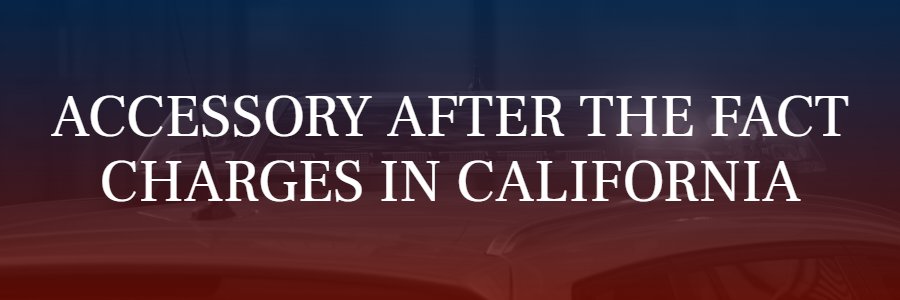Penal Code 32 PC – Accessory After the Fact
Posted in California Law,Criminal Defense on July 8, 2021
It is likely that you have heard the term “accessory after the fact,” as this is a favorite of TV shows and movies. Often, you will see a law enforcement official threatening to charge someone with accessory after the fact if they are hiding someone who is committed a crime.
The reality is that Penal Code 32 PC does define accessory after the fact as a crime. Here, we want to further define what this means, and how a person could face this type of charge. Additionally, we want to look at the possible penalties a person could face if they are found guilty of accessory after the fact.
What Does Penal Code Section 32 State?
When we turn directly to Penal Code 32 PC, we can see that the language specifically says that, “Every person who, after a felony has been committed, harbors, conceals or aids a principal in such felony, with the intent that said principal may avoid or escape from arrest, trial, conviction or punishment, having knowledge that said principal has committed such felony or has been charged with such felony or convicted thereof, is an accessory to such felony.”
In layperson’s terms, this means that if a person aids the perpetrator of a felony by helping them avoid or escape from authorities, they can be held criminally liable as an accessory after the fact. In order for a person to be found guilty of this offense, the prosecution will have to prove the following:
- That a perpetrator committed a felony
- That an individual knew the perpetrator had committed a felony or been convicted of a felony
- That the individual harbored, concealed, or aided the perpetrator after the felony has been committed, and
- That the individual intended for the perpetrator charged with a felony to avoid or escape arrest, trial, conviction, or punishment

Penalties for Accessory After the Fact Charges?
Accessory after the fact is considered a wobbler offense in California. This means that it could be charged as either a misdemeanor or a felony offense. If a person is convicted of this crime as a misdemeanor, they could face up to one year in county jail.
If an individual is convicted of accessory after the fact as a felony, they could face a state prison sentence of 16 months, two years, or three years. Additionally, the person convicted will have to serve 50% of that sentence before they can be released.
Accessory after the fact is not considered a strike offense under the California Three Strike Law.
Difference Between Accessory After the Fact and Aiding and Abetting Crimes
There is a distinction between accessory after the fact and aiding and abetting. In California, aiding and abetting (California Penal Code 31) states that “any person who helps commit a crime is guilty.”
You will notice that for the accessory after the fact language above, there was nothing said about helping a person commit a crime. Accessory after the fact is just that – it happens after the crime has been committed, and it is the actions taken to hide a person who committed the crime.
Any person who is caught aiding and abetting a person will have committed a different type of crime altogether and will face a whole different set of possible penalties. If you or a loved one was charged with a crime, there is no time to waste, contact a criminal defense attorney as soon as possible to start building a strong defense for your case.

